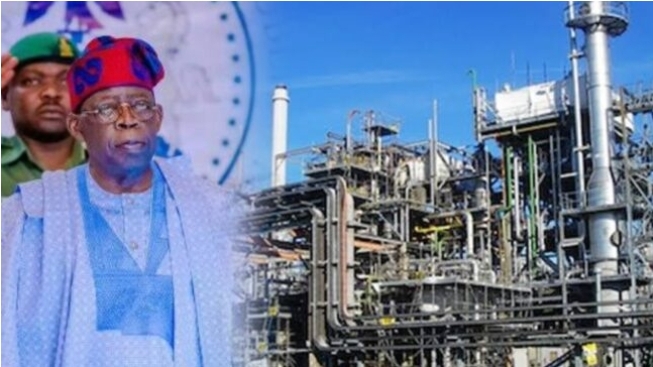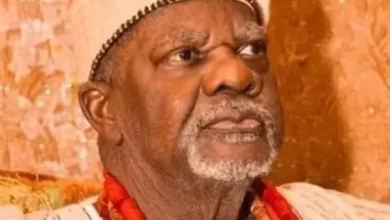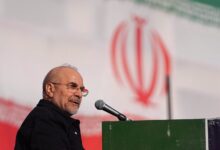Five times Tinubu’s govt has promised to kickstart Port Harcourt Refinery – Media

Five times Tinubu’s govt has promised to kickstart Port Harcourt refinery
Sixteen months into President Bola Ahmed Tinubu’s administration, sworn in May 29, 2023, the hope of Nigeria’s refineries returning to life, as promised, is fast becoming a mirage.

Before the 2023 general elections, the president had, among other things, promised to make the state-owned refineries in Port Harcourt, Warri, and Kaduna operational. Not only that, the then Presidential candidate of the All Progressives Congress (APC) also allayed the fear of Nigerians over possible hikes in fuel prices, assuring that his government, if elected, would ‘bring it down’.
While none of these has been achieved, the Group Chairman of Dangote Industries Limited, Aliko Dangote, threw a subtle jab at the Nigerian government on Tuesday, September 3rd, 2024, when he described the official rollout of PMS, also known as petrol, from his refinery as history made for the country after decades of not producing a single litre of gasoline.
Before Dangote’s announcement of his company’s milestone, NNPCL had earlier quashed the fading hope of Nigerians buying petrol below N500 per litre again since President Bola Tinubu removed the fuel subsidy in May 2023. Amidst scarcity and persistent long queues, Tribune Online reports that the nation’s oil company increased the pump price from N617 to N865 per litre nationwide.
The joy of an Indigenous refinery, Dangote, commencing production of petroleum products was shortlived. Nigerians’ hope, seemingly resting on the shoulders of the billionaire businessman, was clouded by uncertainties, especially on pricing and the back-and-forth that trailed the announcement of the NNPCL as the sole off-taker from the private refinery.
Many had expected that, with an indigenous refinery now operational, the price of petrol would drop, given that the cost of exporting crude oil abroad for refining would no longer be a factor. However, this is far from the reality, as there is no guarantee that the commencement of the Dangote refinery will reduce fuel prices.
Bearing this in mind, conversations are beginning to shift back to the nation’s oil refineries. Many Nigerians are asking questions about the state of things after many assurances of bringing the national assets back to life. Don’t forget the NNPCL recently announced its readiness to hand over Port Harcourt, Warri, and Kaduna refineries to private companies to run.
In this article, Tribune Online takes a look at five different times Tinubu’s government has promised to kickstart the Port Harcourt refinery to no avail.
1. During Tinubu’s Meeting with Labour Leaders in August 2023
On 2nd August 2023, President Bola Tinubu assured that the Port Harcourt refinery would start production by December 2023, following the completion of the ongoing rehabilitation contract between the NNPCL and the Italian firm, Maire Tecnimont SpA.
According to a statement by Dele Alake, the then Special Adviser to the President on Special Duties, Communications, and Strategy, the assurance was given after Tinubu’s discussions with Joe Ajaero, President of the Nigeria Labour Congress (NLC), and Festus Osifo, President of the Trade Union Congress (TUC).
The promise was part of the President’s efforts to end nationwide protests by the unions following the government’s removal of the petrol subsidy.
2. Minister of State for Petroleum’s Visit to the Refinery in August 2023
On 25th August 2023, during a visit to the Port Harcourt Refining Company (PHRC) Ltd. plant in Port Harcourt, Rivers State, the Minister of State for Petroleum Resources (Oil), Heineken Lokpobiri, announced that the refinery would commence operations by December 2023.
He noted that the $1.5 billion rehabilitation of the Port Harcourt refinery was part of Tinubu’s administration’s efforts to end the importation of petroleum products. He added that the Warri and Kaduna refineries would also be operational by 2024.
3. After Mele Kyari’s Meeting with the Senate Ad-hoc Committee in March 2024
On 14th March 2024, the Tinubu administration again promised to kickstart the refinery. The Group Chief Executive Officer of NNPCL, Mele Kyari, gave the assurance during a meeting with the Senate Ad-hoc Committee on the Turnaround Maintenance of the country’s four refineries.
Kyari stated that the refinery had already been completed at the time and would begin producing refined petroleum by the end of March 2024.
4. During the Senate Ad-hoc Committee on Petroleum’s Visit to Gov. Siminalayi Fubara in April 2024
On 19th April 2024, during a courtesy visit to the Executive Governor of Rivers State, Siminalayi Fubara, the Senate Ad-hoc Committee to Investigate the Turnaround Maintenance of Nigeria’s Refineries revealed that the Port Harcourt refinery was 90 per cent complete and expected to commence operations before the end of the year.
The Chairman of the committee, Senator Ifeanyi Ubah, stated that the rehabilitation of the refinery was in line with President Tinubu’s Renewed Hope Agenda. He added, “We are pleased to note that what we saw is most encouraging as the refinery upgrade and full rehabilitation is almost at 90 percent completed. We are confident that the refinery will soon be operational before the end of the year”.
5. During an Emergency Session on the State of the Economy in July 2024
In the most recent promise regarding the refinery’s commencement date, on 15th July 2024, the Group Chief Executive Officer of NNPCL, Mele Kyari, set a new date of August 2024 for the Port Harcourt refinery to begin production.
Kyari provided this assurance during an emergency session on the state of the economy with the Joint Senate and House of Representatives Committees on Finance. He added that Nigeria would become a net exporter of petrol by the end of the year, noting that the Kaduna refinery would also be ready for petrol production by December 2024.
Despite these numerous promises, as of the time of this report, the Port Harcourt refinery, like its counterparts in Warri and Kaduna, has yet to commence petrol production.
Source: TRIBUNE









